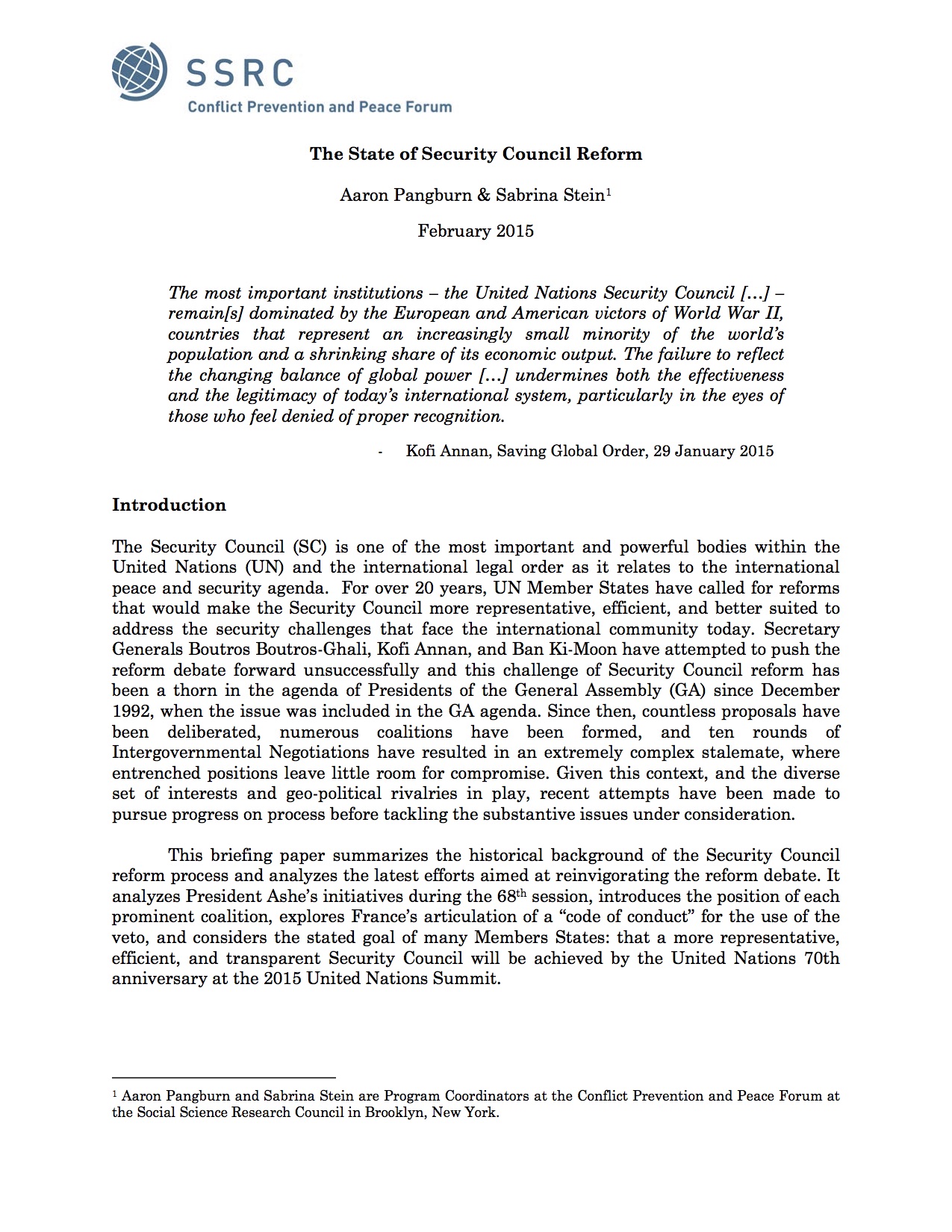The Security Council (SC) is one of the most important and powerful bodies within the United Nations (UN) and the international legal order as it relates to the international peace and security agenda. For over 20 years, UN Member States have called for reforms that would make the Security Council more representative, efficient, and better suited to address the security challenges that face the international community today. Secretary Generals Boutros Boutros-Ghali, Kofi Annan, and Ban Ki-Moon have attempted to push the reform debate forward unsuccessfully and this challenge of Security Council reform has been a thorn in the agenda of Presidents of the General Assembly (GA) since December 1992, when the issue was included in the GA agenda. Since then, countless proposals have been deliberated, numerous coalitions have been formed, and ten rounds of Intergovernmental Negotiations have resulted in an extremely complex stalemate, where entrenched positions leave little room for compromise. Given this context, and the diverse set of interests and geo-political rivalries in play, recent attempts have been made to pursue progress on process before tackling the substantive issues under consideration.
This briefing paper summarizes the historical background of the Security Council reform process and analyzes the latest efforts aimed at reinvigorating the reform debate. It analyzes President Ashe’s initiatives during the 68th session, introduces the position of each prominent coalition, explores France’s articulation of a “code of conduct” for the use of the veto, and considers the stated goal of many Members States: that a more representative, efficient, and transparent Security Council will be achieved by the United Nations 70th anniversary at the 2015 United Nations Summit.
